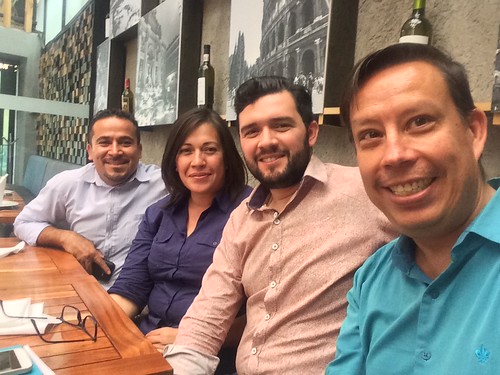As I mentioned in one of my recent blog posts, I have PhD students at all stages (about to defend their PhD proposal, about to go on to the field, about to finish) and therefore I have been reading a lot of books on the PhD journey. I’ve also been participating in several events associated with PhD students’ performance: dissertation proposal defense, comprehensive exams, etc., both my own students and those on whose doctoral committees I sit on.
What I have been finding is that there’s a lot of variation in how doctoral students are mentored and what they learn and how they approach their research. So I tweeted about this, and complained that we do a poor job of training students at all three levels (undergraduate, masters and doctoral) on how to craft and develop good research questions.
I had a meeting with a student yesterday and I was reminded that we don't seem to teach how to design and ask research questions. #PhDChat
— Dr Raul Pacheco-Vega (@raulpacheco) June 22, 2018
Regardless of whether you’re writing a book-length, cohesive manuscript or 3 papers, you should have a driving/leading research question. I also think we do a poor job of reminding students and even early career scholars: our job is to EXPLAIN phenomena. We are looking for answers to puzzles. And to explain phenomena and look for answers we need to ask good questions: WHAT matters is different to WHETHER it matters to HOW it does.
One of the main problems we face is teaching our students how to find puzzles. What drives your work, what motivates your research, what makes what you’re studying important? What’s the puzzle you are seeking to solve? This is a big problem – a lot of students and researchers don’t seem to know strategies to find a puzzle worth examining.
With one of my recent graduates, I used this piece: “what is the point? teaching graduate students how to construct political science research puzzles” https://t.co/gmNE4Xfi67 to help him devise what the puzzle was. What is it that makes you wonder/ponder about a phenomenon?
— Dr Raul Pacheco-Vega (@raulpacheco) June 26, 2018
The truth is that we need to help our students follow a systematic process for undertaking research. This is my own strategy:
The way I think about research is usually as follows – Reflecting on a Puzzle – Drafting a Research Question – Creating a Research Design – Choosing Methods and a Methodological Strategy – Implementation (Conducting the Research) – Reporting
— Dr Raul Pacheco-Vega (@raulpacheco) June 26, 2018
To me, finding a puzzle to solve is about pondering. Why, instead of getting X response to Y variable, we are getting Z?. It’s about finding something head scratching. It’s about going “huh?”. I have been using the framework I posit below to help my students frame their own research based on a puzzle that drives the research, and also based on positing specific research questions for each paper.
I'm working with my doctoral students and testing this framework (3 papers model). Comments as always, welcome. pic.twitter.com/Eve9nTYgND
— Dr Raul Pacheco-Vega (@raulpacheco) June 26, 2018
A FEW RESOURCES TO HELP STUDENTS AND RESEARCHERS DEVELOP RESEARCH QUESTIONS:
- Alvesson and Sandberg (2011) Generating Research Questions Through Problematization. Academy of Management Review
- Gustafsson and Hagström (2017) what is the point? teaching graduate students how to construct political science research puzzles. European Political Science
- Schafer — Questions about Causes. — this is a great handout on examining causality and research questions
- Vandenbroucke and Pearce (2018) From ideas to studies: how to get ideas and sharpen them into research questions Clinical Epidemiol. 2018; 10: 253–264.
- Lauren Horn Griffin (2015) Puzzling It Out: Teaching Marketable Skills in History Courses with the Jigsaw Technique Perspectives on History. American Historian Associations
- Agee (2009) Developing qualitative research questions: a reflective process International Journal of Qualitative Studies in Education
- Lipowski (2008) Developing great research questions. American Journal of Health System Pharmacy.
If you liked this blog post, you may also be interested in my Resources for Graduate Students page, and on my reading notes of books I’ve read on how to do a doctoral degree.


One Response
Stay in touch with the conversation, subscribe to the RSS feed for comments on this post.
Continuing the Discussion